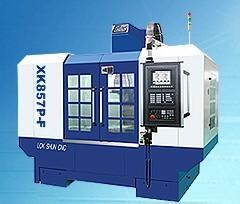 According to statistics, this year's manufacturing investment will not be affected by the impact of excess production capacity, and infrastructure development driven by urbanization will become the main driving force for steady growth. Exports will be better than 2012, but it will be difficult to return to high-speed growth. In particular, China's foreign trade will enter a difficult adjustment period, and low-speed and stable growth will be a long-term trend. According to China Machine Tool Network (Machine35.com), in terms of consumption, the policy of promoting income distribution reforms is very slow to stimulate consumption, and it is difficult to see results in the short term. Consumption will be an economic stabilizer, but it is difficult to stimulate the economy to emerge. Obviously pick up.
According to statistics, this year's manufacturing investment will not be affected by the impact of excess production capacity, and infrastructure development driven by urbanization will become the main driving force for steady growth. Exports will be better than 2012, but it will be difficult to return to high-speed growth. In particular, China's foreign trade will enter a difficult adjustment period, and low-speed and stable growth will be a long-term trend. According to China Machine Tool Network (Machine35.com), in terms of consumption, the policy of promoting income distribution reforms is very slow to stimulate consumption, and it is difficult to see results in the short term. Consumption will be an economic stabilizer, but it is difficult to stimulate the economy to emerge. Obviously pick up. The capital market in overseas markets continued to fall, investors’ confidence and enthusiasm for investment were severely hit, and funds continued to pull out of the market. Affected by this, Chinese companies’ overseas listings have also been hit hard. Only 24 companies have been listed on four overseas markets, totaling US$2.981 billion in financing, which showed a larger year-on-year decline.
From January to May 2013, the largest export market for machine tools in Taiwan was still in mainland China and Hong Kong. From January to May, the export value was 478 million US dollars, a year-on-year decrease of 18%, but the proportion still exceeded 33%. The second largest exporting country is the United States, with a share of 11.9% and an amount of US$168 million, a decrease of 18.3%. The third largest exporter is Thailand, with a total amount of 103 million U.S. dollars, a decrease of 3.8%, with a share of 7.3%.
From January to May 2013, the export of machine tools in Taiwan fell by 18.3% year-on-year, and the export value was 1.416 billion US dollars. Among them, the export of machine tools increased slightly in May, and the export value reached US$320 million, a year-on-year increase of 1.1%, and exports gradually stabilized. According to statistics, the top 10 countries in Taiwan's machine tool export rankings are China (including Hong Kong), the United States, Thailand, Turkey, Indonesia, South Korea, Germany, Malaysia, India and the Netherlands.
According to research, in the first half of 2013, the output of China's metal-cutting machine tools was 360,000 units, a year-on-year decrease of 12.4%. It is estimated that in 2013 China's metal cutting machine tool production will be less than 700,000 units, about 100,000 units less than the 2012 production. Statistics show that in June 2013, China's metal cutting machine tool production was 67,000 units, a year-on-year decrease of 6.9%.
In the first half of this year, the total orders of eight major machine tool manufacturers in Japan were 219.43 billion yen, a decrease of 17.1% year-on-year. The eight machine tool manufacturers include Mori Seiki Co., Ltd., OKUMA, Makino Manufacturing Co., Ltd., Osaka Kogyo OKK, Toshiba Machine Co., Ltd., Jinshang Jietete, Toyota Mechanic, and Mitsubishi Heavy Industries. Luo Baihui, chief researcher of Jinmo Machine Tool Network, believes that the deceleration in China's economy, the decline in demand for smart phones and the flood recovery in Thailand are the main reasons for the reduction of orders.
The Japan Machine Tool Industry Association released data on July 9. In June of this year, Japan's machine tool orders (speed report value) was 95.179 billion yen, a year-on-year decrease of 12.4%. Among them, domestic machine tool orders amounted to 32.071 billion yen, a year-on-year decrease of 7.9%; overseas machine tool orders amounted to 631.08 billion yen, a year-on-year decrease of 14.5%. Among the eight machine tool manufacturers that accounted for 40% of the machine tool orders, the orders of seven manufacturers except Mori Seiki saw a downward trend.
The highest level of performance many street drivers will ever need, UHP summer tires are generally low-profile, high-steering, response monsters made for cornering the hottest cars at the hottest speeds. They will almost always carry [V" or higher speed ratings. Their wet conditions capabilities will be more toward the useless side.
UHP Tyres,High Speed UHP Tyres,Low Noise UHP Tyres,Low Fuel Consumption UHP Tyres
SHANDONG FENGYUAN TIRE MANUFACTURING CO., LTD. , http://www.fytires.com